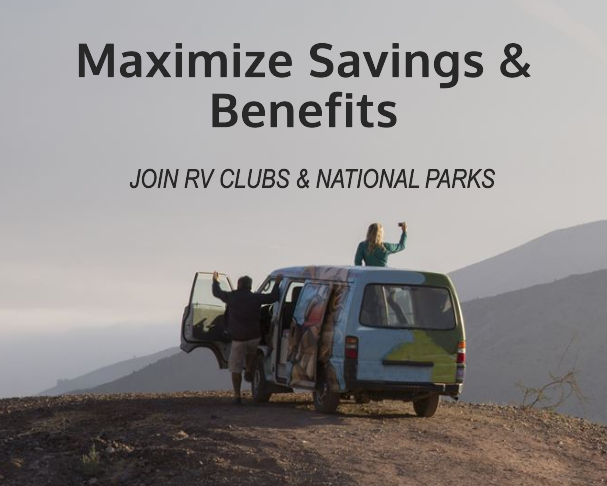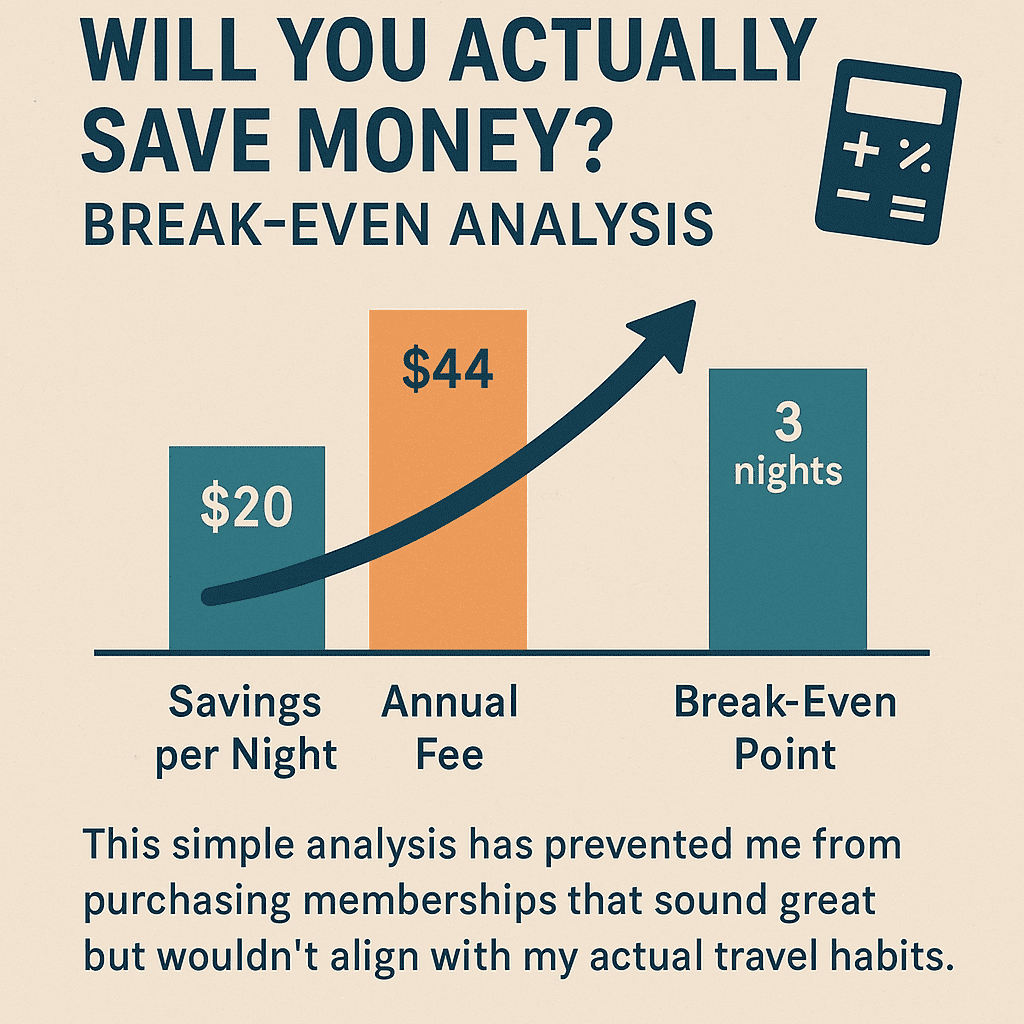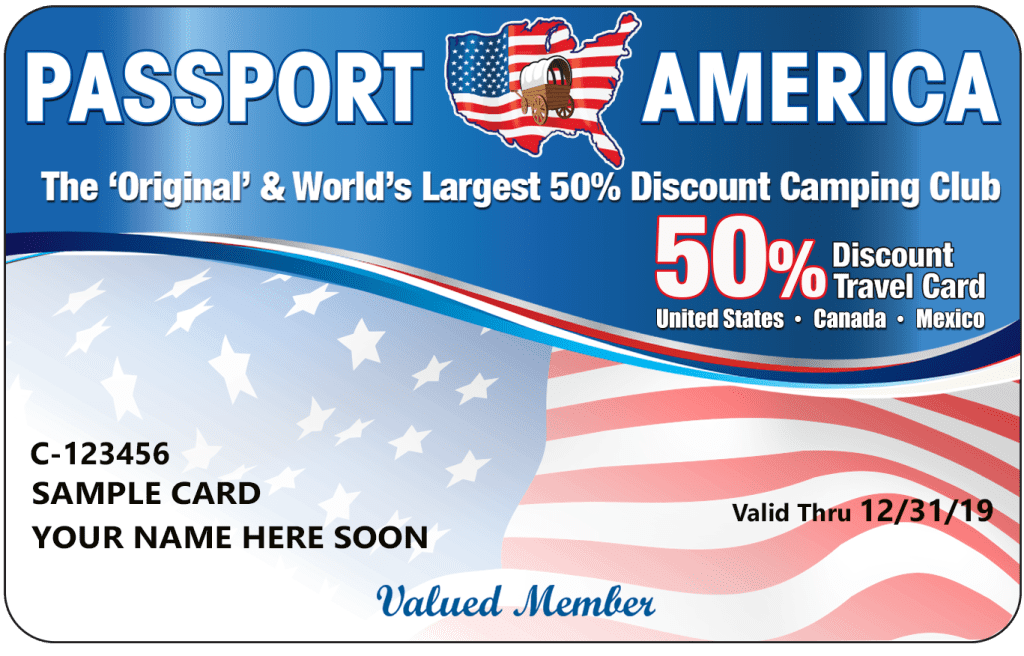
Walmart Overnight RV Parking Policy by State 2026
Walmart Overnight RV Parking Policy by State 2026
Walmart overnight RV parking is one of the most searched and most misunderstood topics in the RV world. The confusion exists because there is no single answer. Corporate says yes. Your local city council might say no. The store manager on Tuesday might say yes while the one on Thursday says no.
This guide breaks down what Walmart corporate actually controls, what overrides their policy, and how to verify any store before you commit to a 300-mile detour. It also includes a state-by-state reference table and backup options for when a store turns you away.
One thing before we go further: Walmart overnight parking is a courtesy, not a right. The RVers who treat it like a free campground are the reason stores keep posting “No Overnight Parking” signs. If you want this option to survive, treat every Walmart lot like a one-night rest stop and nothing more.
If you are looking for free RV parking alternatives beyond retail lots, we cover dispersed camping, casino parking, and membership programs in a separate guide.
What Walmart Corporate Does and Does Not Decide
Walmart’s corporate FAQ page includes this statement about RV parking: the company values RV travelers, considers them among its best customers, and permits RV parking on store lots as it is able. Permission is extended by individual store managers based on parking space availability and local laws. The company asks travelers to contact store management before parking.
That statement has not changed in years. What has changed is the ground-level reality.
What corporate decides:
- The general policy permitting stores to allow overnight RV parking
- The absence of electrical hookups or RV-specific accommodations at any store
- The delegation of authority to individual store managers
What corporate does not decide:
- Whether any specific store actually allows overnight parking on any given night
- Local zoning ordinances that prohibit overnight parking in commercial lots
- Lease agreements where Walmart does not own the property or parking lot
- Security concerns driven by incidents at a specific location
The Sam Walton origin story is real. The founder was an RVer who encouraged stores to welcome travelers. That philosophy still appears in corporate communications. But corporate cannot override a city ordinance, and they cannot force a manager who has dealt with dumped sewage or month-long squatters to keep welcoming RVs.
This distinction matters because it means no app, no database, and no website can give you a guaranteed answer. Community-reported tools like the Walmart Locator interactive map and the AllStays app provide useful starting points. But the only reliable verification is a direct call to the store, on the day you plan to arrive.
How to Verify a Store Before Arrival
Calling ahead is the single most important step in Walmart overnight parking. It eliminates the 2 a.m. security knock, the wasted fuel, and the scramble to find a backup at midnight in an unfamiliar town.
The verification process:
Step 1: Screen with an app first. Use the AllStays Camp & RV app or the free Walmart Locator website (walmartlocator.com) to check the reported overnight parking status. These tools are community-maintained, so they are not always current. Treat them as a starting filter, not a final answer. If a store is flagged as “no overnight parking,” it is almost certainly accurate. If it is flagged as “yes,” it may have changed since the last report.
Step 2: Call the store directly. Ask to speak with a manager. Do not rely on the answer from whoever picks up the phone at the service desk. Front-line associates may not know the current policy or may give you a default “no” to avoid making a decision. A simple script:
Step 3: Ask about placement. If the manager says yes, ask where they prefer you to park. Some stores have a preferred area. Follow their instructions exactly.
Step 4: Confirm local law compliance. If the manager says “we allow it but the city doesn’t,” that is your answer. The city wins. If the manager seems unsure about local ordinances, do not assume it is fine.
Step 5: Have a backup. Always identify one alternative within 30 minutes of your planned Walmart stop. Truck stops, Cracker Barrel restaurants, and rest areas are the most common fallbacks. We cover these in the alternatives section below. For travelers trying to keep overall camping costs low, free overnight stops like Walmart are one piece of a larger strategy.
State and Local Restrictions That Override Store Permission
Even when a store manager says yes, state or local laws can make overnight parking illegal. This is the part most RV guides skip, and it is the part that gets people ticketed.
There are three categories of restrictions that override a store manager’s permission:
1. Municipal anti-camping and overnight parking ordinances. Many cities, particularly in California, Florida, and the Pacific Northwest, have enacted ordinances that prohibit overnight parking in commercial lots. Some specifically target vehicles over a certain length. Others ban sleeping in vehicles anywhere within city limits. These ordinances apply regardless of whether the property owner consents. Kingman, Arizona, for example, enacted an ordinance specifically targeting retail lot overnight stays, with fines up to $250.
2. Lease and property ownership restrictions. Not every Walmart owns its building or its parking lot. In shopping centers and strip malls, Walmart is a tenant. The landlord or property management company may prohibit overnight parking in the shared lot. The store manager may not even have the authority to override this, even if they personally would allow it. This is especially common in urban and suburban locations where Walmart shares a lot with other retailers.
3. Zoning and land use regulations. Commercial zoning in many jurisdictions includes provisions about vehicle storage, overnight occupancy, or “camping” on commercial property. Even where there is no specific anti-RV ordinance, general zoning rules can be applied to prohibit overnight stays.
The pattern is consistent across the country: urban and tourist-heavy areas are more restrictive. Rural and small-town Walmarts are more likely to allow overnight parking without local government interference. Stores near major highways in less populated areas remain the most reliable option.
For RVers planning extended trips on public lands, Walmart overnights work best as one-night transit stops between boondocking destinations, not as a primary camping strategy.
To restate the core framework: Walmart corporate permits overnight RV parking. Store managers approve or deny based on local conditions. Municipal ordinances, lease restrictions, and zoning laws can override both corporate policy and manager permission. The only reliable verification method is a direct phone call to the specific store on the day of arrival. No app or database replaces that call.
Walmart Overnight RV Parking: State-by-State Reference
The table below reflects the general pattern for each state based on community reports, municipal ordinance research, and RVer experiences. It is not a guarantee for any specific store. Every entry in the “Call Ahead Required” column says Yes because that is always true regardless of state.
This table does not replace calling the store. It helps you set realistic expectations before you start dialing.
| State | Common Status | Local Restrictions Common | Call Ahead | Notes |
|---|---|---|---|---|
| Alabama | Generally allowed | Low | Yes | Rural stores tend to be welcoming. Gulf Coast tourist areas more restrictive. |
| Alaska | Generally allowed | Low | Yes | Limited stores. Anchorage and Fairbanks locations typically allow it. |
| Arizona | Mixed | Moderate | Yes | Kingman enacted anti-overnight ordinance ($250 fines). Quartzsite-area stores RV-friendly in winter. Phoenix metro restrictive. |
| Arkansas | Generally allowed | Low | Yes | Walmart HQ state. Rural stores are typically the most welcoming in the country. |
| California | Mostly restricted | High | Yes | Most urban and coastal cities prohibit overnight lot parking by ordinance. Inland rural stores offer the best odds. New state-level restrictions trending. |
| Colorado | Mixed | Moderate | Yes | Front Range cities restrictive. Mountain towns and eastern plains more flexible. |
| Connecticut | Mostly restricted | High | Yes | Dense population and local ordinances make overnight parking uncommon. |
| Delaware | Mixed | Moderate | Yes | Limited stores. Beach-area locations generally restricted. |
| Florida | Mostly restricted | High | Yes | Local ordinances ban overnight lot parking in most coastal and tourist areas. Interior and Panhandle stores offer better odds. High snowbird traffic increases enforcement. |
| Georgia | Generally allowed | Low to Moderate | Yes | Metro Atlanta restrictive. Rural and south Georgia stores generally allow it. |
| Hawaii | Restricted | High | Yes | State law bans sleeping in vehicles overnight. Very few Walmart locations. Not viable for RV overnighting. |
| Idaho | Generally allowed | Low | Yes | Rural and permissive. Boise metro slightly more restrictive. |
| Illinois | Mixed | Moderate | Yes | Chicagoland area heavily restricted. Downstate and rural stores more accommodating. |
| Indiana | Generally allowed | Low | Yes | Mostly RV-friendly outside Indianapolis metro. |
| Iowa | Generally allowed | Low | Yes | Rural state with welcoming stores. Des Moines metro stores check local rules. |
| Kansas | Generally allowed | Low | Yes | Primarily rural. Kansas City metro may have restrictions. |
| Kentucky | Generally allowed | Low | Yes | Louisville metro somewhat restrictive. Rest of state generally welcoming. |
| Louisiana | Generally allowed | Low to Moderate | Yes | New Orleans area restricted. Rural and I-10/I-20 corridor stores generally allow it. |
| Maine | Mixed | Moderate | Yes | Tourist coastal towns often restricted. Inland stores more accommodating. |
| Maryland | Mostly restricted | High | Yes | Dense suburbs and local ordinances make overnight parking difficult across most of the state. |
| Massachusetts | Mostly restricted | High | Yes | Tight zoning throughout the state. Very few stores allow it. |
| Michigan | Generally allowed | Low to Moderate | Yes | Upper Peninsula and rural stores welcoming. Metro Detroit and Ann Arbor more restrictive. |
| Minnesota | Generally allowed | Low | Yes | Twin Cities metro somewhat restrictive. Greater Minnesota generally welcoming. |
| Mississippi | Generally allowed | Low | Yes | Rural and welcoming statewide. Gulf Coast stores check local rules. |
| Missouri | Mixed | Moderate | Yes | Kansas City Walmarts reported as no-overnight. Rural stores generally accommodating. Branson tourist area variable. |
| Montana | Generally allowed | Low | Yes | Permissive state with plenty of BLM and NF alternatives nearby. |
| Nebraska | Generally allowed | Low | Yes | I-80 corridor stores useful for cross-country travelers. |
| Nevada | Mixed | Moderate | Yes | Las Vegas metro restricted. Casino parking is a better option in resort areas. Rural Nevada stores generally allow it. |
| New Hampshire | Mixed | Moderate | Yes | Tourist season in White Mountains area can trigger restrictions. |
| New Jersey | Mostly restricted | High | Yes | Dense population and restrictive local ordinances statewide. Few options. |
| New Mexico | Generally allowed | Low | Yes | RV-friendly state with abundant BLM and NF alternatives. Store lots useful for resupply stops. |
| New York | Mostly restricted | High | Yes | Downstate almost entirely restricted. Upstate and Adirondack-region stores somewhat more flexible. Thruway rest areas allow 24-hour parking. |
| North Carolina | Mixed | Moderate | Yes | Reports of increasing “no overnight” signs, especially along the coast and in Charlotte metro. Mountain and rural stores still accommodating. |
| North Dakota | Generally allowed | Low | Yes | Rural and generally welcoming. |
| Ohio | Mixed | Moderate | Yes | Centerville, OH reported heavy police enforcement of new no-overnight policy (2025). Rural stores more accommodating. |
| Oklahoma | Generally allowed | Low | Yes | I-40 and I-44 corridor stores are common transit stops for RVers. |
| Oregon | Mixed | Moderate to High | Yes | Portland metro and coast heavily restricted. Eastern Oregon and I-5 rural towns more flexible. |
| Pennsylvania | Mixed | Moderate | Yes | Philly suburbs and Pittsburgh metro restrictive. Central PA and rural stores more accommodating. Turnpike service plazas allow 24-hour parking. |
| Rhode Island | Mostly restricted | High | Yes | Very few stores and dense zoning. Not a reliable option. |
| South Carolina | Generally allowed | Low to Moderate | Yes | Myrtle Beach and Charleston tourist areas more restrictive. Interior stores welcoming. |
| South Dakota | Generally allowed | Low | Yes | Sturgis-area stores may restrict during rally season. Otherwise welcoming. |
| Tennessee | Generally allowed | Low to Moderate | Yes | Nashville and Gatlinburg tourist areas more restrictive. I-40 and I-24 corridor stores useful for transit. |
| Texas | Mixed | Moderate | Yes | Urban areas (Houston, Dallas, Austin, San Antonio) increasingly restrictive. West Texas, Panhandle, and rural stores generally allow it. High concentration of anti-overnight ordinances in metro areas. |
| Utah | Mixed | Moderate | Yes | Salt Lake and Provo metro restrictive. Southern Utah gateway towns to national parks variable. BLM land is a better option in this state. |
| Vermont | Mixed | Moderate | Yes | Williston reported community of long-term lot residents (2025), which may trigger future restrictions. Few stores overall. |
| Virginia | Mixed | Moderate | Yes | Northern Virginia (DC suburbs) restricted. Shenandoah Valley and southwest Virginia more accommodating. |
| Washington | Mixed | Moderate to High | Yes | Seattle metro and western Washington heavily restricted. Eastern Washington and I-90 corridor stores more flexible. |
| West Virginia | Generally allowed | Low | Yes | Rural and welcoming. Good transit option on I-64 and I-77. |
| Wisconsin | Generally allowed | Low | Yes | Milwaukee metro somewhat restrictive. Dells tourist area variable during peak season. Rest of state welcoming. |
| Wyoming | Generally allowed | Low | Yes | Permissive state. BLM and NF land nearby makes Walmart less necessary here. |
This table does not cover every local ordinance. It does not capture lease restrictions at individual locations. It does not reflect policy changes that happen after publication. Verify current status with the store directly.
Alternative Chains When Walmart Says No
Getting a “no” from Walmart is not the end of your night. Several other chains and public facilities can fill the gap. The same rules apply everywhere: call ahead, stay one night, keep a low profile, and spend money where you park.
Cracker Barrel
Cracker Barrel has over 660 locations across 45 states and a long history of welcoming RVers. Many locations have designated RV-sized parking spaces. The policy is store-by-store, just like Walmart, and Cracker Barrel’s media relations confirmed in 2025 that their overnight policies have not changed at the corporate level. However, RVers are reporting an increasing number of individual locations declining overnight stays. A Cracker Barrel representative stated that the decision is based on local ordinances, lot size, and layout.
The etiquette is the same: call the restaurant directly, ask the manager, eat a meal there, and leave by morning. Cracker Barrel lots tend to be quieter than Walmart lots after closing and many are located right off highway exits.
Limitation: Cracker Barrel is not present in Alaska, Hawaii, California, Oregon, Washington, or Vermont. Coverage is strongest in the Southeast, Midwest, and along major interstate corridors.
Cabela’s and Bass Pro Shops
Since the 2017 merger, both chains generally allow overnight RV parking. Their lots are large, often quieter than Walmart, and some have designated RV spaces. Call ahead to confirm. Alaska Bass Pro has been reported as not allowing overnight parking.
Truck Stops
Pilot Flying J, Love’s, and TravelCenters of America (TA/Petro) all have locations that accommodate RVs. About 23% of major chain locations have designated RV parking areas, based on location data analysis. Some charge $15-35 per night where fees apply. Most mixed-use parking is free but comes with unwritten etiquette about space usage. Professional truck drivers completing federally mandated rest periods take priority. Stay out of marked commercial driver zones.
For a detailed breakdown of truck stop parking etiquette, safety assessment, and chain-by-chain policy analysis, see our complete guide to overnight RV parking at truck stops.
Rest Areas
Interstate rest areas are managed by state Departments of Transportation, not private companies. Rules vary by state, from unlimited overnight stays to 2-hour limits that effectively prohibit sleeping. Our rest area overnight parking guide by state provides a full state-by-state table with time limits and DOT source links.
General rules for rest areas: stay inside your vehicle, keep slides in, do not set up camp, park in standard vehicle spaces (not commercial truck areas), and follow all posted time limits.
Casino Parking
Many casinos allow free overnight RV parking as a way to attract customers. Check with security on arrival. Some casinos use license plate tracking and expect you to visit the casino floor. Tribal casinos in the Southwest and Midwest are often the most accommodating.
The backup strategy that works: Before you commit to a Walmart overnight, identify one alternative within 30 minutes in each direction. Use the AllStays app or iOverlander to find nearby options. Having a Plan B eliminates the midnight scramble that leads to risky parking decisions.
Walmart Overnight Parking Etiquette That Keeps the Privilege Alive
The number of Walmarts allowing overnight RV parking has dropped over the past decade. One widely cited Outdoorsy report estimated the figure at roughly 58% of locations still permitting stays, down from an estimated 78% a decade earlier. The Walmart Locator community database lists over 1,000 no-park stores. The decline is driven by three things: local ordinances, liability concerns, and RVer behavior.
You cannot control the first two. You can control the third.
One night only. Arrive in the evening. Leave by mid-morning. If you need a second night due to an emergency, get fresh permission from the manager.
Park far from the entrance. Use the outer edges of the lot. Stay away from loading docks, fire lanes, and customer traffic flow.
No campground behavior. Keep slides in unless absolutely necessary for access (and if you must extend one, park against a curb where it extends over grass, not into traffic). No awnings. No outdoor chairs, rugs, or grills. No generator use unless you have explicit permission and even then, not after 10 p.m. Do not unhitch your trailer.
Shop inside. Spending $30-50 on groceries or supplies gives the store manager a business reason to keep allowing overnight parking. This is the single most effective way to protect the privilege.
Leave no trace. Take everything you brought. If it did not come from the store or the parking lot, it leaves with you. Never dump gray water, black water, or trash in the parking lot. This is the fastest way to get RV parking banned at a location permanently.
Be invisible. The ideal Walmart overnight is one where nobody notices you were there. If security, other customers, or the morning shift manager would never know an RV stayed overnight, you did it right.
Frequently Asked Questions
Does Walmart corporate allow overnight RV parking?
Yes. Walmart’s corporate FAQ states that the company values RV travelers, permits parking on store lots as able, and delegates approval to individual store managers based on parking availability and local laws.
Do all Walmart stores allow overnight RV parking?
No. Of roughly 4,600 U.S. stores, the Walmart Locator community database lists over 1,000 as prohibiting overnight parking, and the actual no-park count may be higher. Local ordinances, lease restrictions, manager discretion, and past abuse all affect individual store policies.
How do I find out if a specific Walmart allows overnight parking?
Use the AllStays app or the Walmart Locator website (walmartlocator.com) to check community-reported status, then call the store directly and ask to speak with a manager. The phone call is the only reliable confirmation.
Can I stay more than one night at Walmart?
The expectation is one night only. Extended stays are the primary reason stores revoke overnight parking privileges. If you need more than one night, use a campground, truck stop, or dispersed camping area.
What if the manager says yes but there is a “No Overnight Parking” sign?
The sign may reflect a local ordinance rather than the store’s preference. Clarify with the manager whether the restriction is store policy or city law. If it is a city ordinance, the sign governs regardless of the manager’s willingness.
Is Walmart overnight parking safe?
Walmart stores rarely have dedicated overnight security patrols. Park in well-lit areas, lock your doors, secure external gear, and trust your instincts. If a lot feels unsafe, leave. A truck stop with overnight activity is often safer than an empty parking lot.
Do I need to buy something if I park overnight?
It is not required, but it is the smartest thing you can do. Spending money at the store gives management a business incentive to keep allowing overnight parking. Budget $30-50 for groceries or supplies.
Last verified: March 2026. Walmart overnight parking policies change frequently at the individual store level. Always call the specific store before arrival. This guide reflects community-reported data and published corporate policy. It does not constitute legal advice regarding local ordinances.








